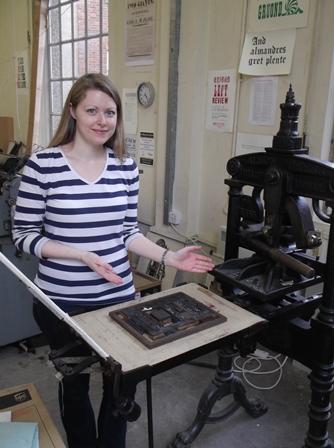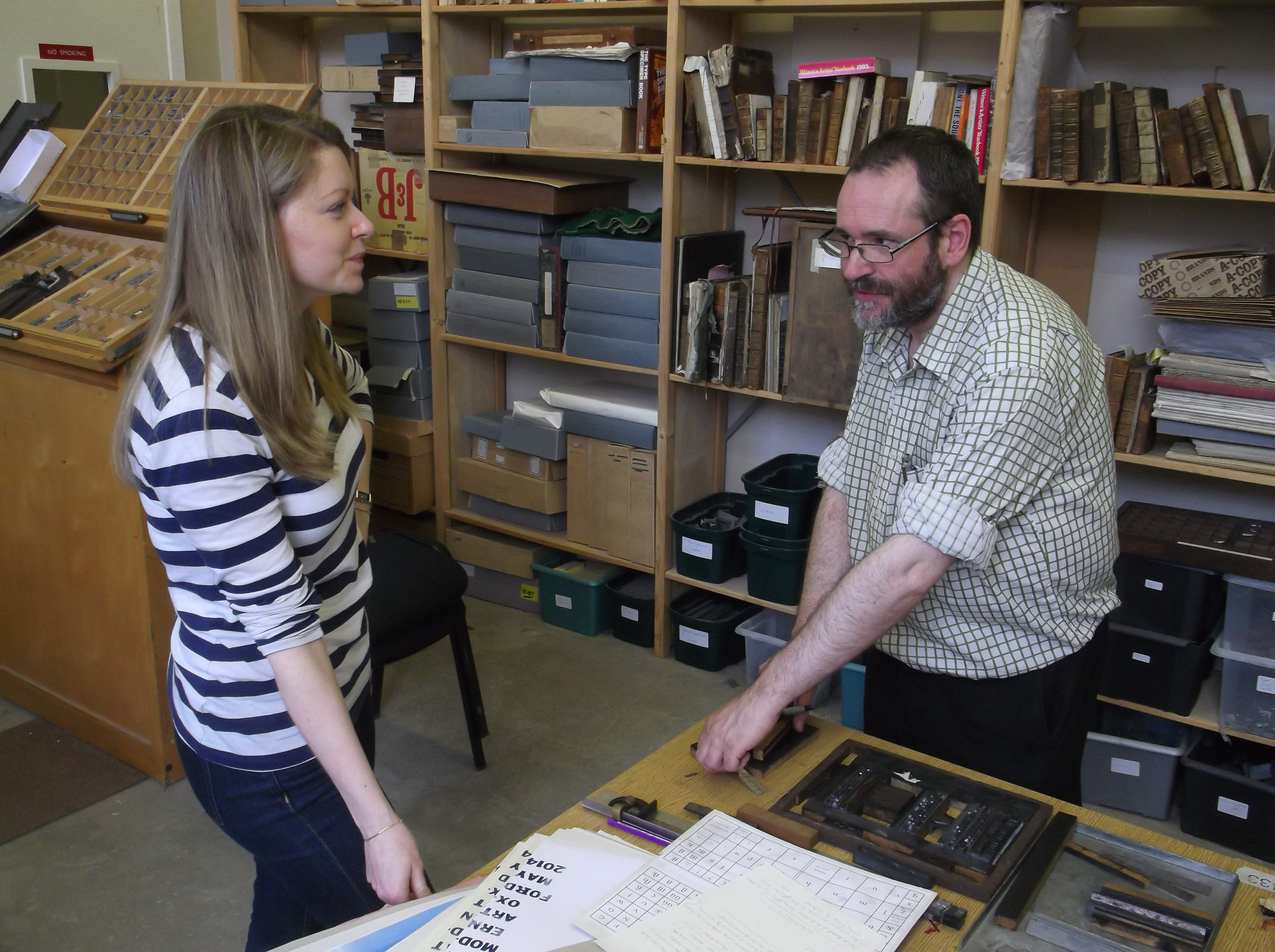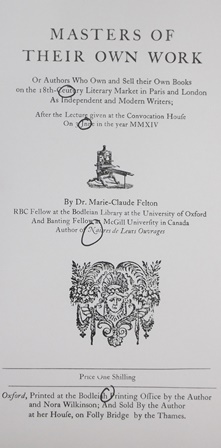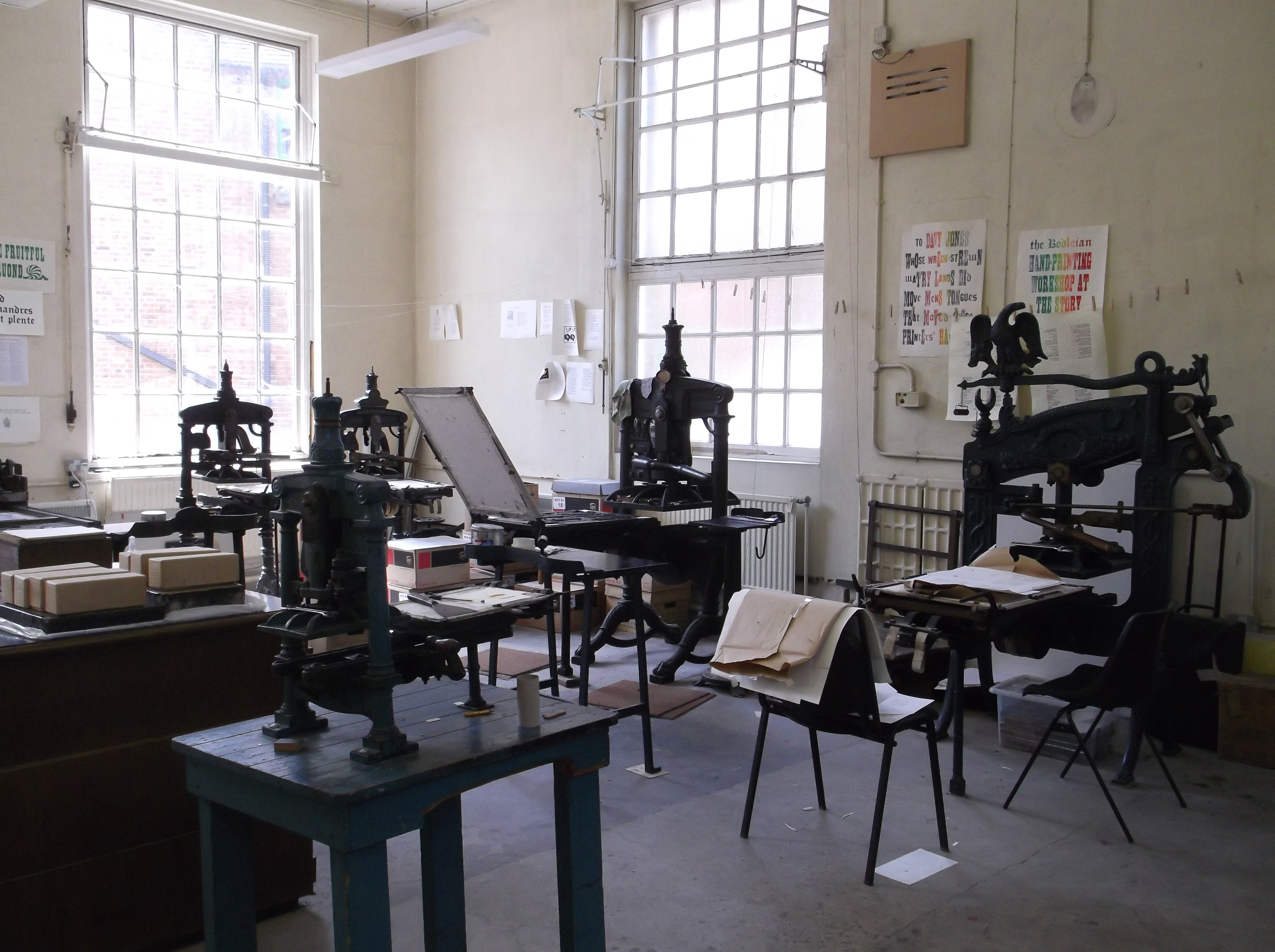On Friday 20 June, Dr. Marie-Claude Felton stood in front of a type case, composing stick in hand. She was selecting metal type to complete a line that read ‘Oxford, Printed at the Bodleian Printing Office by the Author.’ The ‘Bodleian Printing Office,’ officially known as the Bodleian Hand-Printing Workshop, houses several hand-printing presses, in a temporary home at the Story Museum on Pembroke Street.

What brought Dr. Felton to the printing press on a Friday afternoon? She was there to compose and print a handbill memorializing her recent lecture at the Bodleian. For a historian of publishing practices, this opportunity to work with antique printing technologies was perfectly suited.
Self-Publishing, past and present
Dr. Marie-Claude Felton, one of the Bodleian’s two 2013-4 Royal Bank of Canada Fellows, recently published a book, Maitres de Leurs Ouvrages, focusing on self-publishing in late-eighteenth-century Paris. Her research at the Bodleian expands on this, focusing on self-publishing in Paris, Leipzig, and London –the three main European publishing centres – between 1750 and 1850.
Dr. Felton gave an overview of her past and current research at the Convocation House on 3 June in a lecture titled ‘Masters of Their Own Work.’ She began with an observation about the current state of publishing:
With the growing online book market, especially with the advent of digital publishing and the popular e-readers, one of the more dramatic changes to impact publishing today has been the ability of a growing number of authors to bypass traditional publishers to produce and sell their own books. In fact, for a few years now, self-publishing has been producing more books each year than traditional publishing. This phenomenon naturally raises a number of questions regarding, among other things, the place and role of authors, and the relevance of the booksellers and publishers as cultural mediators and promoters of literature.
These questions, suggested Dr. Felton are not new ones. In her talk, she defined self-publishing before answering the crucial questions ‘who, what, and how?’ Self-publishing was not confined to any one subject or type of author, she said. Interestingly, authors who self-published often sold the books from their homes, which resulted in more direct interaction with their readers. Divided as the artistic enterprise of writing and the professional pursuit of publishing and selling may seem to us now, Dr. Felton suggests that the two were not irreconcilable – that, in fact, many authors fused the two in a variety of ways in the eighteenth century.
For a video of Dr. Felton’s lecture, click here.
The Bodleian Hand-Printing Workshop

Fresh off this lecture, and still immersed in her current research, Dr. Felton tried her hand at ‘self-publishing.’ With the assistance of Dr. Paul Nash, the printing tutor at the Bodleian Hand-Printing Workshop, she composed, set, and printed the sheet below.


As you can see, the first draft is rarely the final draft. Indeed, early proofs almost always contain errors. While some are due to mistakes on the part of the compositor, others result when letters are mistakenly returned to the wrong tray. This often occurs with letters that have similar shapes, which might explain the confusions between h, n, and u, seen here.
With a range of types and presses – including Albion, Columbia, Vandercook, and others– the Hand-Printing Workshop hosts classes as well as open workshops from 2 – 5 pm on Fridays. Click here for schedules and further information.

– from Nora Wilkinson (Harvard University)
